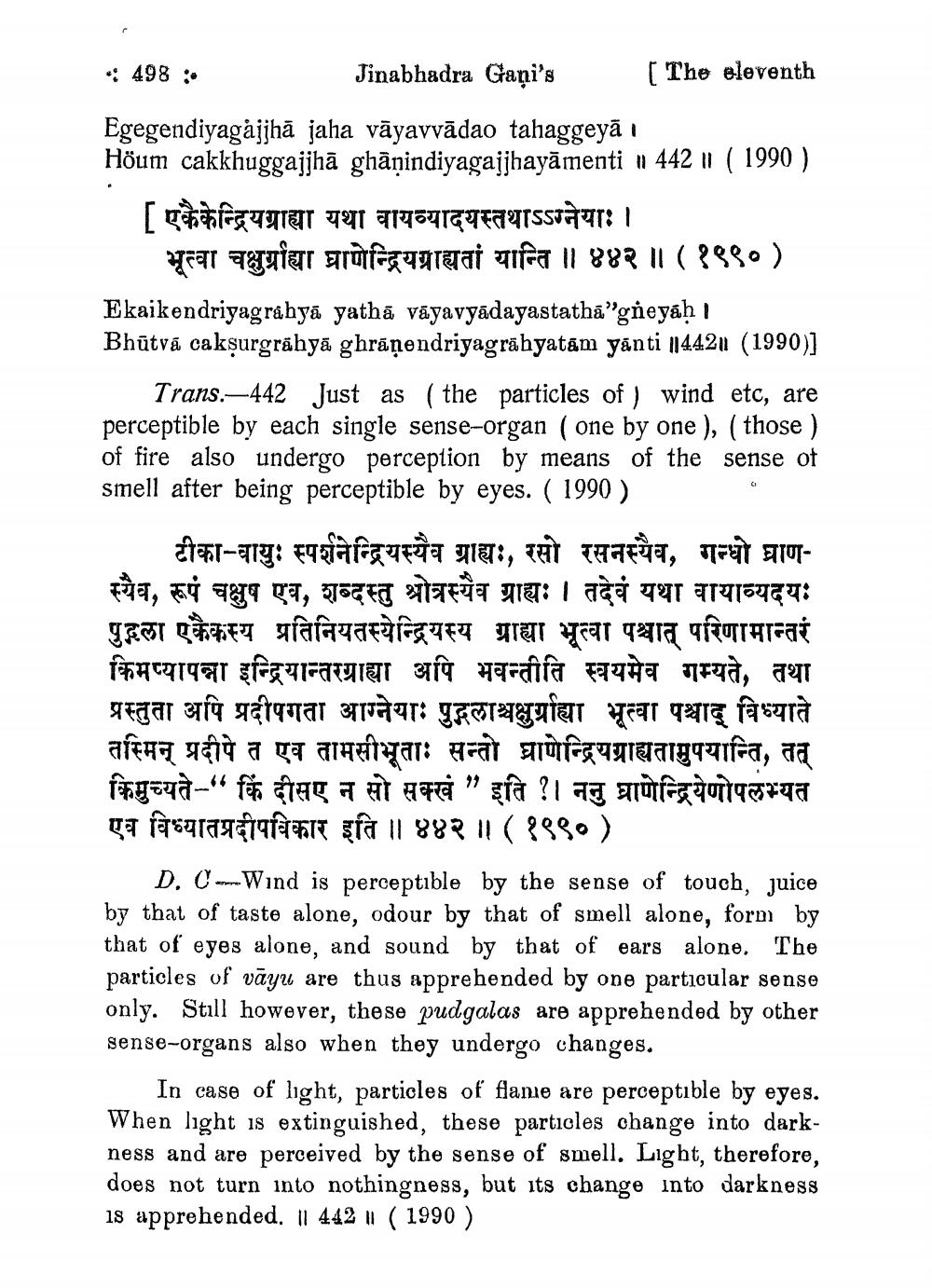________________
: 498 :
Jinabhadra Gani's (The eleventh Egegendiyagájjhā jaha vāyavvādao tahaggeyā i Höum cakkhuggajjhā ghāṇindiyagajjhayāmenti 11 442 11 ( 1990 ) [एकैकेन्द्रियग्राह्या यथा वायव्यादयस्तथाऽऽग्नेयाः।
भूत्वा चक्षुाद्या घ्राणेन्द्रियग्राह्यतां यान्ति ॥ ४४२ ॥ (१९९०) Ekaikendriyagrahya yathā vāyavyadayastathā”greyāḥ 1 Bhutvā caksurgrāhya ghranendriyagrahyatam yanti 14420 (1990)]
Trans.-442 Just as ( the particles of ) wind etc, are perceptible by each single sense-organ ( one by one), (those ) of fire also undergo perception by means of the sense of smell after being perceptible by eyes. ( 1990)
टीका-वायुः स्पर्शनेन्द्रियस्यैव ग्राह्यः, रसो रसनस्यैव, गन्धो घ्राणस्यैव, रूपं चक्षुष एव, शब्दस्तु श्रोत्रस्यैव ग्राह्यः । तदेवं यथा वायाव्यदयः पुद्गला एकैकस्य प्रतिनियतस्येन्द्रियस्य ग्राह्या भूत्वा पश्चात् परिणामान्तरं किमप्यापन्ना इन्द्रियान्तरग्राह्या अपि भवन्तीति स्वयमेव गम्यते, तथा प्रस्तुता अपि प्रदीपगता आग्नेयाः पुद्गलाश्चक्षुह्या भूत्वा पश्चाद् विध्याते तस्मिन् प्रदीपे त एव तामसीभूताः सन्तो घ्राणेन्द्रियग्राह्यतामुपयान्ति, तत् किमुच्यते-" किं दीसए न सो सक्खं " इति ?। ननु घ्राणेन्द्रियेणोपलभ्यत एव विध्यातप्रदीपविकार इति ॥ ४४२ ॥ (१९९०)
____D. CWind is perceptible by the sense of touch, juice by that of taste alone, odour by that of smell alone, form by that of eyes alone, and sound by that of ears alone. The particles of vāyu are thus apprehended by one particular sense only. Still however, these pudgalas are apprehended by other sense-organs also when they undergo changes.
In case of light, particles of flanie are perceptible by eyes. When light is extinguished, these particles change into darkness and are perceived by the sense of smell. Light, therefore, does not turn into nothingness, but its change into darkness is apprehended. ॥ 442 ॥ ( 1990)




